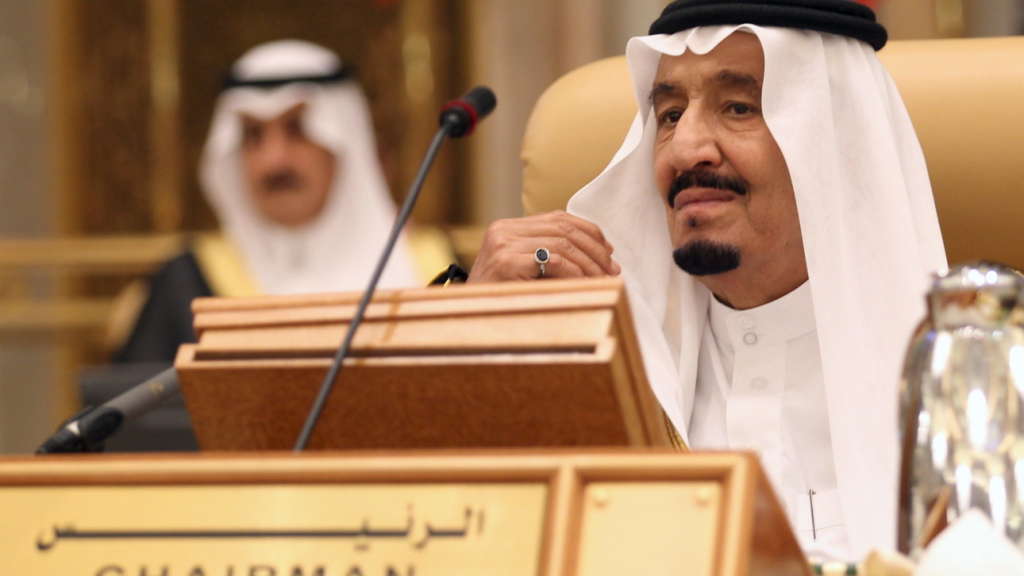It only took 149 days for the Saudi-Egyptian Cooperation Council to take bilateral relationships between the two countries into a whole new level. The significance of strategic Saudi-Egyptian shared relationships and strengths since its establishment, has been revealed in Cairo yesterday, during the Saudi Sovereign King Salman bin Abdulaziz’s visit, which highlights the visit to be a historical one with singular harvest that will not be repeated anytime soon.
Even though the visit witnessed the remarkable signing of 17 agreements and a high-profile memorandum, the announcement on establishing the King Salman Bridge, which is anticipated to connect both Egypt and Saudi Arabia, and defining the naval Saudi-Egyptian borders stand to be the greatest cooperative work shared by the two countries over the last thirty years. The bridge is the first territorial connective route shared between African Arabs and Asian Arabs since Israel’s declaration of establishment.
The surprise on defining naval borders- which was a decades-long ticking time-bomb all countries avoided due to the shared significant relationships – is destined to defuse any future crisis which could be sparked on spur of moment just like any other border issue left unattended.
Borders were drawn, the Custodian of the Two Holy Mosques, King Salman, then announced the construction of a bridge, which will not only join to countries but also join two entire continents, Asia and Africa.
This titanic project would have been impossible and suspended; should the case of borders kept unsettled.
The significance of the King Salman Bridge matches the value of the Suez Canal, however, in a humbler view. The bridge will open the doors wide; the African continent will be accessible to Asian exports.
Moreover the bridge will represent a magical solution to the Silk Route network which China plans on establishing. The Silk Route would connect each of Asia, Africa and Europe by a 47-billion-dollar project, which will pass through 556 countries and most importantly connecting all Arab lands which are separated by the Red Sea.
In short, the King Salman Bridge will be a momentous geopolitical change that has the whole region benefiting and not only specific countries.
The project on reinforcing Saudi-Egyptian cooperation through linking it to economic interests, military collaboration and interest based investments aiming at economic integration was not by chance. The corroboration was founded by the Cooperation Council partaken by both countries and led by Deputy Crown Prince Mohammad bin Salman bin Abdulaziz and Egyptian Prime Minister Sherif Ismail.
Frankly; Saudi Arabia is not handing out a free grant to Egypt, on the contrary, it presents the latter with a better option which is rendered beneficial on the short and long term. The option is billions of dollars invested rightfully in what Riyadh has considered to be an appropriate fertile land for investment and is capable of accomplishing feasible returns.
Saudi Arabia has killed two birds with one stone, first it has further endorsed its political and military alliance with a country as significant as Egypt and second, it is supporting Egyptian economy based on mutual benefit. Saudi Arabia is pumping in large flows of investment in the land of Kinanah (an old name for Egypt); exactly what Egypt really needs, at a time in which most world countries refrain from, due to political concerns or shying away from risk taking.
Truth is, Riyadh is backing its ally –Egypt- through a balanced equation founded on mutual benefit investment and not endowments.
If the late Saudi King Abdulaziz (may his soul rest in peace) has visited Egypt in 1949, which is what King Salman mentioned, yesterday, to be the only official visit the late King has made during his rule, then King Salman has chosen Egypt to be his second target following his U.S. visit after he assumed rule.
Furthermore, King Salman has elected to break protocol on such visits, which usually is a two-days’ stay tops, and extended his Highness’s stay to five days.
King Salman’s visit will not be cut short to political deliberations and the signing of common agreements, the King will also be attending purpose oriented occasions held on historical sites; like Al-Azhar Mosque, Cairo University and Abdeen Palace.
King Salman’s visit will aim at painting a different outlook on Saudi-Egyptian affairs, in which they strengthen Egypt, yet, not anchor down the Kingdom of Saudi Arabia.
